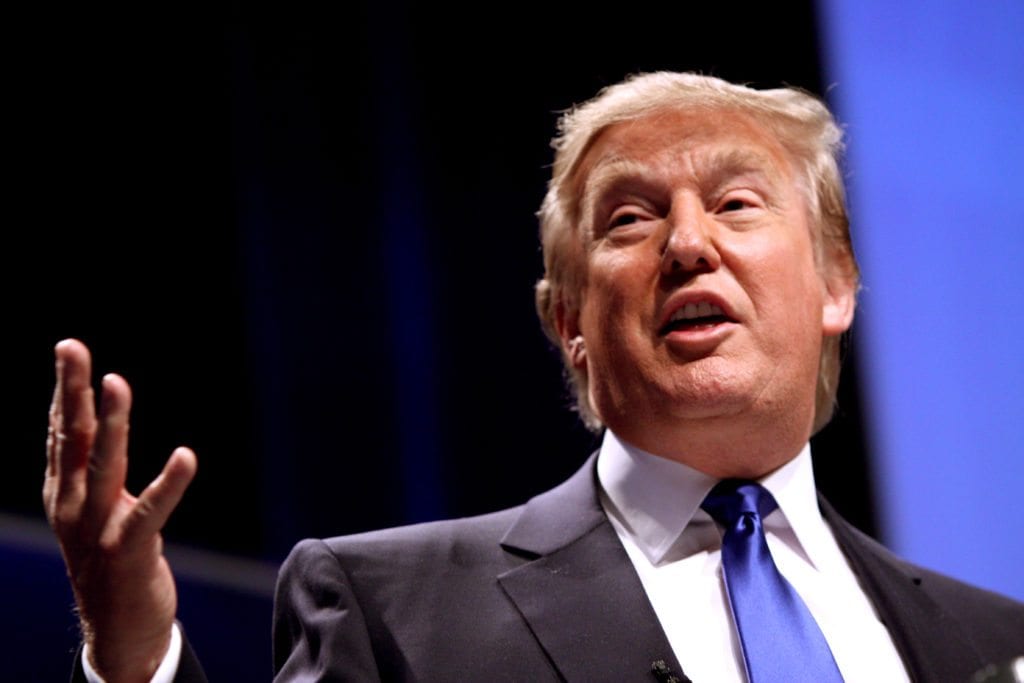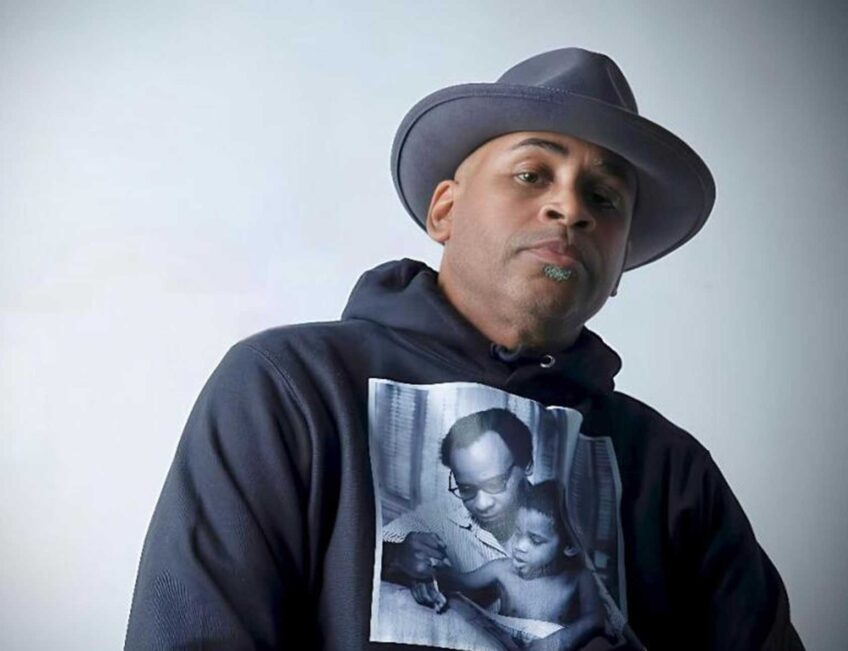U.S. prepares for Trump presidency
Fears high that hateful rhetoric will become policy

Donald Trump is president-elect. The news left many reeling and bracing themselves for Trump’s America.
“We’ve woken up to a reality where the most blatantly racist, misogynist xenophobe has won the presidency,” said Elena Letona, executive director of Neighbor to Neighbor Massachusetts, a minority, women and working class activist group. “I stayed up to the very end unable to move. But we have to. We have to pick up the pieces.”
Trump’s policies — many of which are restrictive to the rights of women, Muslims, immigrants and non-whites — may face few barriers, with the White House turned red.
Last Tuesday, Republicans secured a continued majority in federal House and Senate. With the Republican Congress resisting President Barack Obama’s Supreme Court justice nomination, Trump also now is positioned to fill that vacancy, ensuring a five conservative jurist majority. Trump has promised that his selection — and his selections for any further justice vacancies during his term — will be “ultra conservative.”
“Many are very concerned about justices that may be appointed that take a very restrictive approach to reproductive rights, freedom of speech, due process and equal protection rights,” said Rahsaan Hall, director of the Racial Justice Program for the American Civil Liberties Union of Massachusetts, speaking on Wednesday.
Hillary Clinton beat Trump in the popular vote. But Trump secured 290 electoral votes to Clinton’s 232, according to the most recent numbers reported by the Associated Press.
Trump’s pull was especially strong among white men without college educations, were he took 70 percent of their vote, reported the BBC. Meanwhile Clinton took 88 percent of the black vote.
Political shift
Several said that Trump’s victory reveals a new political climate.
Sheriff Steve Tompkins said it indicates a major shift from traditional politics and a need to redefine it.
“We as a nation really need to look at our political process and try to understand — particularly elected officials — what people that they govern really want. Are we really listening to what the people are saying or is it just business as usual?” he told the Banner on Wednesday.
“This isn’t a big Republican win,” Mayor Martin Walsh said, noting that many Republicans stood against Trump. “This is a win for people who feel disenfranchised in politics.”
The election indicated voter frustration with both main political parties, Walsh said.
Non-whites
Fear is rippling through a broad swath of the body politic as many anticipate how Trump will act on his explosive comments.
Oren Sellstrom, litigation director for the Lawyers’ Committee for Civil Rights and Economic Justice, said many in the civil rights community are worried that Trump’s policies will reflect the xenophobia and racism woven through his campaign.
“The question now is how much Trump is going to govern in that spirit. It remains to be seen what his actual policy and practices are going to be,” Sellstrom said last week.
Thus far, those fears have not been assuaged: Several days after Sellstrom’s comments, Trump drew fire from civil rights groups, Democratic leaders and some Republican strategists across the country when he appointed Stephen Bannon as senior counsel and chief strategist. Bannon, until recently the executive chairman of Breitbart news, has been widely accused of being racist, anti-Semitic, anti-Muslim and misogynistic.
In July 2016, Bannon wrote an article on Breitbart in which he suggested that police shootings of blacks have been justified: “Here’s a thought: What if the people getting shot by the cops did things to deserve it? There are, after all, in this world, some people who are naturally aggressive and violent.” In July 2015, Bannon encouraged display of the Confederate flag two weeks after nine black church attendees were murdered in Charleston, South Carolina in 2015.
Speaking separately to the Banner last week, Hall and Sellstrom underlined another troubling prospect: Trump’s advocacy for stop-and-frisk, an approach that results in blacks and Hispanics being stopped disproportionately.
“One of the things that a lot of people are really concerned about are some of his comments around being a law and order candidate and what that means, especially for communities of color as related to stop-and- frisk — a practice that several courts have determined to be unconstitutional,” Hall said.
The civil rights community also is concerned about Trump’s selection of Supreme Court justices, including the possibility that he may choose supporter Rudy Guiliani, the former-New York mayor who championed stop-and-frisk, Sellstrom said. At risk could be advances made in protections against racial profiling and discrimination and voting rights, he said.
“The concern, particularly with the judicial, is this that this could mean the rollback of advancements,” Sellstrom said. “Those kinds of civil rights issues had been on a good trajectory, and it is up to all of us to ensure that those rights continue and are not stopped in their tracks.”
While Trump will be reassessed by voters in four years, Supreme Court justices can serve for life.
Women and immigrants
During his campaign, Trump made statements widely regarded as objectifying and belittling to women, and bragged of sexual assault. A 2005 video that spread across the internet captured Trump saying that he kissed women and grabbed their genitals without consent, relying on his celebrity to silence objections. Trump has promised to punish women who get abortions and to appoint a Supreme Court justice who would overturn Roe v. Wade.
Also troubling, Hall said, is Trump’s call for deportation squads and mass deportations. Many expect Trump may reverse current policies that focus deportations on immigrants with criminal conviction and protect immigrants who grew up in America after being brought in illegally as children.
Trump also has called for banning all Muslims from entering the country and requiring all Muslims in the U.S. to register with a national database.
Mayor Walsh and Michael Kane, executive director of the National Alliance of HUD Tenants and Mass Alliance of HUD Tenants, last Thursday pointed to another risk: that children growing up under the new federal administration may absorb Trump’s prejudiced rhetoric.
“Another generation of kids growing up are going to see this misogynistic racist behavior legitimized,” Kane said.
Working class
Kane said the right wing’s new hold on both federal executive and legislative branches may usher in severe economic policy changes. This presidential and Congressional alignment drops the barriers to conservative budget policies touted by both Trump and House Speaker Paul Ryan that would cut taxes for the wealthiest and absorb the ensuing revenue reduction by slashing support programs for the poor and middle class, Kane said. He anticipated reduced federal backing for Medicare, Medicaid and Social Security in order to balance the proposed high level of tax cuts on the rich.
“There’s nothing now to stand in the way of doing that except Senate filibuster by Democrats,” Kane said. “Trump is simply a clever con artist who persuaded working class people to vote against their own interests economically.”
Response and action
Walsh told reporters that it is too early to panic with so much unknown, and promised that Boston will protect its gay and immigrant communities. He offered a ray of hope, saying that while Boston needs to work with the federal government to achieve some policy goals, the city also carries a strong reputation nationally that may give its opinions traction with the president.
In the days after the election, protests and rallies occured across the nation.
For some, this election is a call for uniting and organizing, and for focusing on local level impact.
“[Trump’s] campaign was a frontal attack to communities of color, to women, to immigrants, Muslims, and et cetera,” Letona said. “We have got to really come together and talk to each other and organize across all of that.”
The 2018 Congressional elections will be a critical chance to bring change in federal government, Kane advised. Sellstrom said many in the civil rights world are prepared to take a stand as the Trump presidency unfolds.
“I think people are ready to roll up their sleeves and defend civil rights,” Sellstrom said.
City Councilor Ayanna Pressley called on residents to channel the same vigorous engagement of time, money and effort that they leveled at the ballot questions this year into city and state politics year round.
Pressley served as Clinton’s surrogate in several states.
“I worked as hard as I did because I believed everything I care about stood to be imperiled and threatened if Trump won,” she told the Banner last Thursday. “I still feel that way.”






